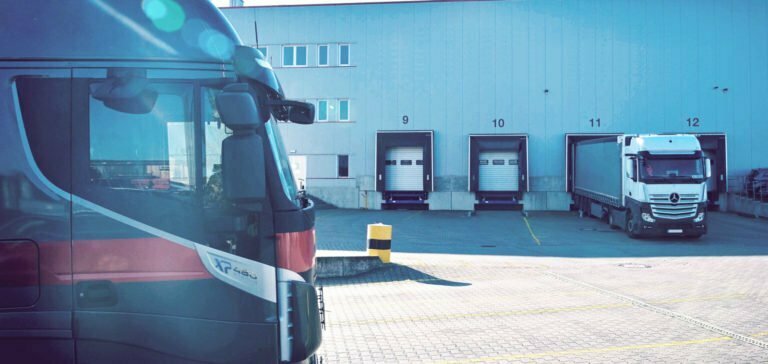Digitalization is often approached cautiously in the warehouse environment. But the hurdles are usually smaller than feared and the benefits considerable. Especially when it comes to new additional services in the warehouse or functioning within the digital supply chain. For many companies, digitalization initially focused on other areas, such as development and production. And the subject is not relevant for every warehouse: There will always be straightforward warehouses with very simple processes that can largely get by without extensive digitalization. But for somewhat more complex warehouses, especially with integration into upstream and downstream processes, digital transformation contributes significantly to efficiency within the supply chain and to cost savings.
Technology platform instead of paper management
Of course, well-established processes are almost always already in place in the warehouse. Therefore, the motto “never change a running system” is often a major hurdle at first. After all, decision-makers and employees must first leave their comfort zone and get used to new tools and processes. A crucial factor is therefore to involve the workforce in the project right from the start and to make the benefits tangible. But this also includes easing concerns about change.
The other basis for modern logistics concepts that rely on wireless technologies, IoT and data analytics, for example in the form of machine learning or AI, is a technology platform that can also flexibly cover new and upcoming requirements. In practice, we repeatedly encounter solutions that have already reached the end of their life cycle or are not very sustainable. There are still many manual processes with paperwork, and tedious searches are the order of the day. Often, the daily updated inventory overview is missing, not to mention real-time transparency.
Overcoming challenges: Individualization and additional services in the warehouse
On the other hand, there are growing challenges. Today, more and more participants are involved in logistics processes. Often, the flow of information is interrupted as soon as one partner is unable to receive or provide information. For SMEs in logistics chains in particular, this becomes a problem when competitors are available that fit more seamlessly into the digital supply chain.
Increasingly, it is also a question of new services in the warehouse, with which, for example, upstream or downstream processes are relieved of work. What’s more, special processes are on the rise. The customers of warehouse service providers now have much more differentiated and individual handling requirements. For example, a supplier of metal pipes has to deliver pre-oiled or corrosion-protected pipes to some customers, while others want the raw material. One thing is clear: additional logistics services and greater individualization are on the rise and are becoming more and more competitive. In addition, the trend is moving more and more toward just-in-time delivery.
Resolving old trouble spots
Digitized processes can defuse many of the pain points that warehouse managers are still frequently confronted with. These are, for example, downtimes in the context of loading and unloading. Only if it is clear, for example, when a truck is actually at the ramp, can the necessary preparations for the timely provision of the goods – or for a waiting unloading team – be optimally made. The introduction of the myleo / dsc cloud platform at Home24 is one example of how much companies benefit from this.
Digital tools help with route optimization and the optimal interlocking of warehouse transport technology, warehouse automation and physical labor. This generally increases the speed at which services can be provided in the warehouse. In addition, business in many sectors is becoming more dynamic, with more fluctuation. This makes it more difficult to plan orders. In any case, forecast quality is often a sore point: only by consistently collecting and using data can dynamic planning succeed, depending on the current market situation.
Working at leogistics - make the difference with us!
Discover all jobs in consulting, sales or development now and apply in just 2 minutes.
Digitization in data collection
An important first step in this direction is the introduction of scanners. To do this, a number of hurdles have to be overcome in terms of hardware acquisition and setting up the infrastructure for a seamless Internet connection. In addition, employees have to get used to the new system and say goodbye to the paper process they are used to. On the other hand, this creates a considerable boost for data-based process control. With the scanner, employees always have all the information they need for the process with them, and all the individual steps are also immediately available in the system. There is no need to enter data manually; every identification is verified by the scanner, thus avoiding errors – such as scanning the wrong pallet or the wrong location.
Above all, however, self-developed scanner apps can be used to map company-specific workflows and make processes much more efficient. This applies, for example, to the recording of batch values, which are then automatically forwarded to quality management in the batch master record. Logistical issues such as the creation of a truck transport document (LE-TRA/TM) when scanning the first pallet for loading or the suggestion of the right door for loading via the scanner screen also contribute to automation and flexibility.
We are here for You!
Were we able to pique your interest in the digitization of warehouse management?
If you have any questions about this or other topics in this blog, please contact blog@leogistics.com
The RF Framework Is Dead – Long Live The RF Framework
4 variants of production integration with SAP S/4HANA EWM – which one is right for you?
SAP S/4HANA 2020 FPS01: Many New Features in Stock
Do you want to know if a feasibility study brings cost transparency?
The world is spinning and so are we – Process optimization with SAP EWM
BLOG &
NEWS
Latest news and blog posts from the world of intelligent supply chain management.








